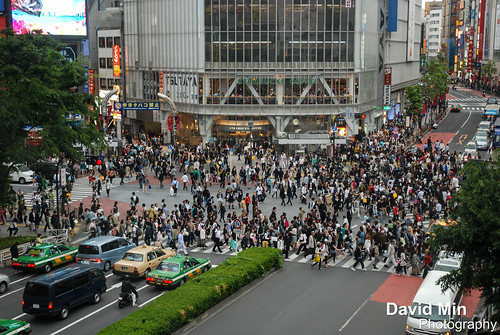"Mayors have a choice about whether they’re going to be anchored in the past or they’re going to prepare for the future" -- Mike McGinn, former mayor of Seattle
There is an interesting interview with former Mayor of Seattle, Mike McGinn, who lost his bid for re-election last year.
A former director of the local Sierra Club chapter and an avid bicyclist, during his tenure, the Seattle Department of Transportation built a number of bicycle and other sustainable transportation projects, including "road dieting," which was seen as very controversial (but not ultimately, why he wasn't re-elected).
He was interviewed by a blog called Bicycle Story, "Mike McGinn: Fighting Bikelash with Seattle’s Former Mayor," and he discussed at great length, "bikelash," the opposition to the development of bicycling infrastructure that typically develops in cities, fomented by residents and organizations focused on automobility.
Interestingly, he makes the point that many of these projects had been developed as a result of the Bicycle Master Plan which was completed in the previous administration. And he says that the way they dealt with bikelash was by reframing the "debate" around overall traffic safety.
He tells some terrible stories about how his interest in improving safety was triggered by terrible bike-car accidents in his neighborhood, where the bicyclists ended up permanently disabled.
Another important point he made was that it is important for advocates to go to the neighborhood forums and lay out the positive case, because otherwise the anti-change contingent dominates the discussion, especially the way it plays out in the media.
A lot of people, even, sometimes, bicyclists can't "unpack" the pro-automobility paradigm that they have been imprinted with. For example, I had this same feeling when reading the recent Dr. Gridlock column, "A D.C. walker, biker and driver finds much to dislike about everyone's street manners," which featured the comments of a DC bicyclist who, I thought, was imprinted with the pro-automobile paradigm too.
In DC, 52% of trips (if we can extend data on trip to work to all trips, which might not be unreasonable) are performed by transit, walking, or biking. That's the majority of trips. Yet the mobility paradigm and priorities of the traffic system favors cars.
A good illustration of the need to re-assess mobility priorities is provided by this intersection in the Shibuyu district of Tokyo, where the majority of trips are conducted on foot. It's by one of the most used transit stations in Japan. Obviously, the priority for crossing should be given to pedestrians, not motor vehicles.
Similarly, in cities where walking, transit, and increasingly, biking, make up a majority of trips, mobility priorities need to shift accordingly.


Labels: car culture and automobility, sustainable transportation, transportation planning, urban design/placemaking





3 Comments:
yes I too read that article and was dismayed by the auto- centric mentality displayed by that "cyclist" who obviously is not a regular cycler or does not use cycling as primary transportation. It does not represent my outlook at all.
I didn't mention in the post, I should probably go back and edit it, that the person suggested that driver road rage is incited by erratic cycling by bicyclists.
FWIW, there are far too few bicyclists to cause much in the way of road rage.
typical comment from a vehicular cyclist- I use the road only when forced to or when the sidewalks are too shitty to ride on. Im sorry to say but all of those VC people out there who claim sidewalks are more dangerous to cycle on than sharing the road with cars- good luck and I hope you all have good medical insurance and that your deductables are all paid up. Every VC enthusiast I know of has been in a scrape with a car or has been injured- some seriously.Clearly- the WaPo sides along with the VC crowd. None for me thanks
Post a Comment
<< Home